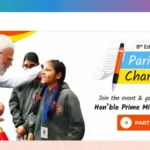Authored by Mr. Sandeep Singh, Founder of Rubystone Hospitality
In the current digital era, social media has emerged as an effective tool for showcasing the remarkable experiences that the hospitality sector is known for. Social media marketing is revolutionizing the way the hotel industry advertises, from providing tourists with an inside look at destinations to interacting with new clients. Here are some ways it is changing the industry and spurring expansion.
- Telling Stories Visually: Making the Ideal First Impression
Visually appealing content can be shared by hotels, resorts, and other hospitality firms on social media sites like Facebook, Instagram, and YouTube. Virtual tours, captivating movies, and high-quality photos give prospective buyers an idea of what to expect.
An Instagram reel showcasing a resort’s sunset vistas, infinity pool, or fine dining options, for instance, might arouse feelings in viewers and encourage them to book. Using images to convey a story not only draws attention to the property’s distinctive features but also leaves a lasting impact on potential visitors. - Loyalty and Trust Are Increased by Interesting Content
Social media creates trust and a direct connection between companies and their clients. Hospitality brands may establish a personal connection by sharing real behind-the-scenes photos, guest reviews, and live conversations.
A sense of community is created by interacting with followers on social media sites like Instagram Stories or Twitter through Q&A sessions, polls, or competitions. Through recommendations and shares, a devoted following can serve as brand ambassadors, expanding the audience.
- Influencer Marketing: Using Suggestions to Their Full Potential
Bloggers and travel influencers are important for advertising hospitality companies. Working together with influencers that share the brand’s values can result in a surge of new clients.
Influencers can provide genuine content that appeals to their fans by sharing their staycation experiences at boutique hotels or adventure resorts. Bookings for the hospitality brand improve as a result of the credibility these influencers have built with their audience. - Highlighting Unique Attractions and Experiences
Social media is the ideal medium for showcasing the unique selling points of a hospitality company. Sharing specialized offerings, such as culinary innovations, eco-friendly projects, or cultural experiences, can draw in a specific audience.
For example, a post about a sustainable travel program or a cooking class led by a hotel’s chef may appeal to foodies or environmentally conscious tourists. By emphasizing these distinctive experiences, the hotel establishes itself as a market leader in its specialty and increases brand awareness. - Instantly Customer Support and Interaction
In the hotel sector, prompt customer service is essential, and social media allows for real-time connection. Companies may rapidly reply to questions, handle grievances, or express gratitude to customers for favorable feedback.
Updates, sales, and last-minute offers can also be shared on social media sites like Facebook and Twitter. Customers feel appreciated when interactions are prompt and responsive, which improves their overall brand experience. - Content Generated by Users and Location Tagging
Getting visitors to post about their experiences on social media is an economical marketing tactic. Customers promote the brand naturally when they tag the hotel or location in their posts.
Instagram reel videos of a spa day or Instagram stories about a resort stay are examples of user-generated content that spreads. Reviews and posts from actual people are more likely to be trusted by potential tourists than branded ads. - Making Use of Social Media Data
Social media sites provide comprehensive data that aid hospitality companies in comprehending the tastes and actions of their clientele. Businesses can improve their marketing strategy by using metrics like follower demographics, engagement rates, and click-through rates.
Brands can concentrate on what appeals to their audience the most by examining these findings, whether it be family-friendly lodging, luxury vacations, or adventure packages. - Reaching a Worldwide Audience with Little Financial Outlay
Because social media levels the playing field, even modest hospitality companies may reach a worldwide audience without spending a lot of money on marketing. Thousands of potential clients can be reached globally with a carefully thought-out campaign.
Targeted marketing based on geography, interests, and demographics is made possible by platforms such as Facebook Ads and Instagram Ads. This guarantees that marketing initiatives are economical and target the appropriate demographic. For the hospitality industry, social media marketing is becoming a must-have tactic for expansion and success. Using influencer partnerships, user-generated content, and visual storytelling, hospitality companies may establish a strong online presence.
Read More:
Social media offers a platform that is unmatched for promoting offerings, from interacting directly with customers to showcasing unique experiences. To remain competitive and prosper in the global market, the hospitality sector must embrace this digital transformation as tourists increasingly turn to social media platforms for inspiration.












More Stories
Railways Unveils Specially Designed Vande Bharat Train for Kashmir Route
Sommeliers Association of India Announces the First-Ever Internationally Recognized 2025 SAI Best Sommelier of India Competition
Live Weather Updates: Heavy Rainfall and Dense Fog Disrupt Delhi-NCR, Orange Warning Issued